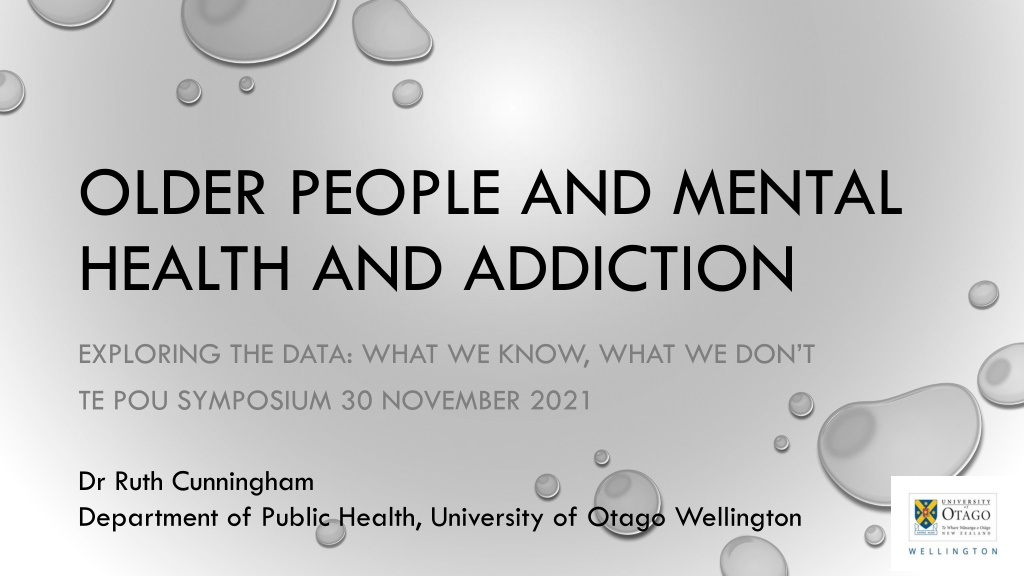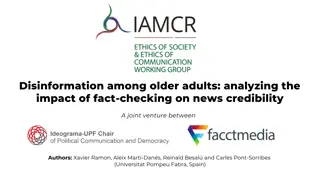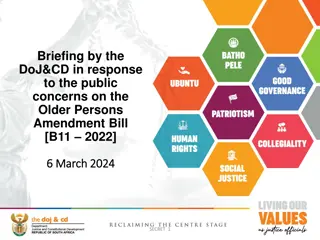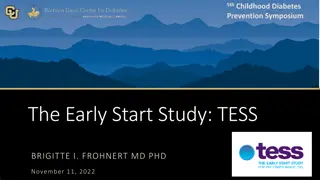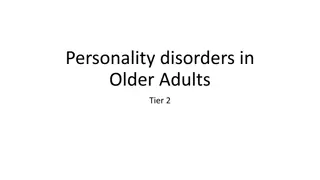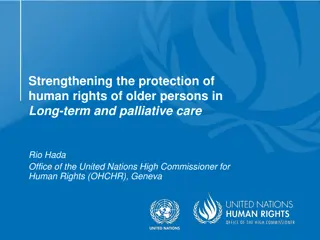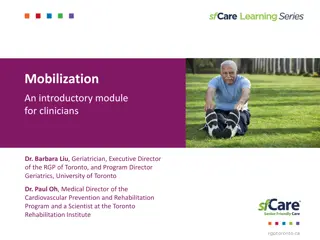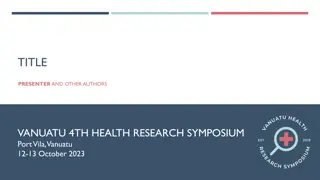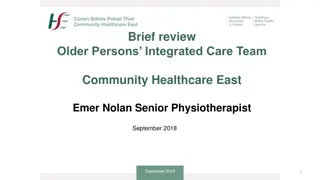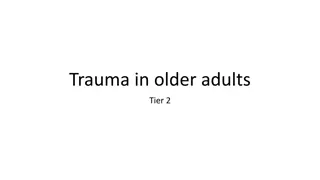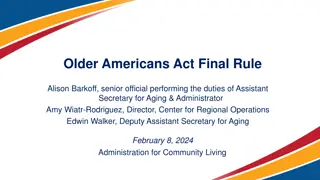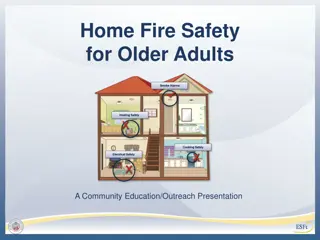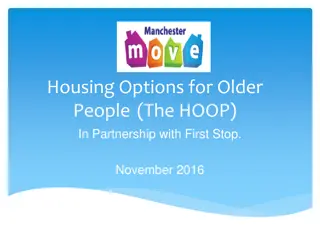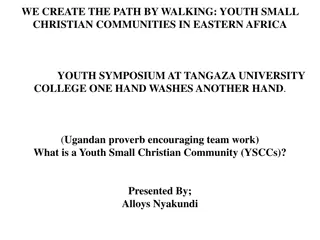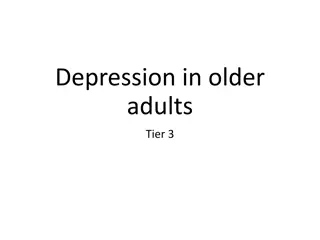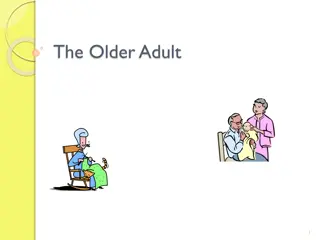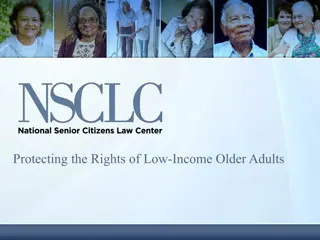Insights on Mental Health and Addiction Among Older Adults: Recent Findings
Exploring the prevalence of mental health and addiction issues among older people through survey data and prescription trends. Dr. Ruth Cunningham from the University of Otago Wellington discussed the lack of up-to-date information and potential worsening trends over time. The presentation also delved into the dispensing of antidepressants and antipsychotics based on age and gender. Insights from various studies shed light on the impact of psychological distress, loneliness, and mood disorders on older adults, especially during the COVID-19 pandemic.
Download Presentation

Please find below an Image/Link to download the presentation.
The content on the website is provided AS IS for your information and personal use only. It may not be sold, licensed, or shared on other websites without obtaining consent from the author. Download presentation by click this link. If you encounter any issues during the download, it is possible that the publisher has removed the file from their server.
E N D
Presentation Transcript
OLDER PEOPLE AND MENTAL HEALTH AND ADDICTION EXPLORING THE DATA: WHAT WE KNOW, WHAT WE DON T TE POU SYMPOSIUM 30 NOVEMBER 2021 Dr Ruth Cunningham Department of Public Health, University of Otago Wellington
HOW COMMON ARE MENTAL HEALTH AND ADDICTION ISSUES AMONG OLDER PEOPLE? SURVEY DATA
35 12 Month prevalence of mental disorders (%) by age, 2004 30 25 20 15 10 5 0 Anxiety disorders mood disorders sustance use eating disrders any disorder 16-24 25-44 45-64 65+
NEW ZEALAND HEALTH SURVEY 2019/20 Psychological distress K10>=12 Alcohol in the past 12 months Ever diagnosed with mood or anxiety disorder
COVID-19 AND OLDER ADULTS MENTAL HEALTH: NZHS COVID-19 SURVEY Lonely at least some of the time in the last 4 weeks Psychological distress (high or very high probability of anxiety or depressive disorder K10 score >=12) 35 30 30 25 25 20 20 15 15 10 10 5 5 0 0 Sep-20 Oct-20 Nov-20 Dec-20 Jan-21 Feb-21 Mar-21 Apr-21 May-21 Jun-21 Sep-20 Oct-20 Nov-20 Dec-20 Jan-21 Feb-21 Mar-21 Apr-21 May-21 Jun-21 15-24 year olds 25-44 year olds 45-64 year olds 65 + year olds 15-24 year olds 25-44 year olds 45-64 year olds 65 + year olds
HOW COMMON ARE MENTAL HEALTH AND ADDICTION ISSUES AMONG OLDER PEOPLE? SURVEY DATA: - LACK OF UP TO DATE INFORMATION - SUGGESTIONS THAT THINGS MAY BE GETTING WORSE OVER TIME
HOW COMMON ARE MENTAL HEALTH AND ADDICTION ISSUES AMONG OLDER PEOPLE? CAN WE TELL FROM PRESCRIPTION DATA?
ANTIDEPRESSANT DISPENSING BY AGE AND GENDER 2013
ANTIPSYCHOTIC DISPENSING BY AGE AND GENDER 2013
HEALTH QUALITY AND SAFETY COMMISSION: MENTAL HEALTH IN PRIMARY CARE ATLAS 2018
BUT DOES PRESCRIBING TELL US ABOUT NEED? Gibb, S., & Cunningham, R. (2018). Mental Health and Addiction in Aotearoa New Zealand: Recent Trends in Service Use, Unmet Need, and Information Gaps. EleMent Research Group.
HOW COMMON ARE MENTAL HEALTH AND ADDICTION ISSUES AMONG OLDER PEOPLE? PRESCRIPTION DATA - A LOT OF PRESCRIBING IN OLDER PEOPLE, MAY NOT BE FOR MENTAL HEALTH CONDITIONS - AT ALL AGES, PRESCRIBING PATTERNS DO NOT NECESSARILY REFLECT NEED ESP. FOR M ORI AND PACIFIC
WHAT ABOUT MENTAL HEALTH AND ADDICTION CARE FOR OLDER PEOPLE? SPECIALIST SERVICES
OLDER PEOPLES SPECIALIST SERVICES IN DHBS ACROSS THE COUNTRY BUT: DIFFERENT FUNDING STREAMS DIFFERENT REPORTING STREAMS DIFFERENT POLICIES AND APPROACHES TO ELIGIBILITY
WHEN WE LOOK AT PRIMHD WHAT DO WE FIND? 2.2% of people over 65 are accessing mental health and addiction services (vs 4% of overall population) Higher proportion of over 85yrs (3.4% vs 1.7% 65-74yrs), but smaller numbers Two major groups: Those who are new to services in older age (most common diagnosis = dementia) Those who have graduated from adult services (diagnoses: schizophrenia, BPAD, substance use, depression) Cunningham et al. (2019) NZMJ,132(1489), 30-38.
Service patterns vary by age Older ages shorter period of contact with services Younger ages more intensive treatment, higher rates of crisis and inpatient treatment Cunningham et al. (2019) NZMJ,132(1489), 30-38.
WHAT ABOUT MENTAL HEALTH AND ADDICTION CARE FOR OLDER PEOPLE? SPECIALIST SERVICES: - LACK OF NATIONAL DATA; LACK OF DIAGNOSIS DATA - AGING WITH MENTAL HEALTH AND ADDICTION ISSUES BRINGS DIFFERENT CHALLENGES COMPARED TO CONDITIONS WITH ONSET LATER IN LIFE - PROVISION VARIES BY AGE; DOES PROVISION = NEED?
OTHER DATA SOURCES: HOSPITALISATIONS AND MORTALITY SELF HARM HOSPITALISATIONS AND SUICIDE DATA ALCOHOL RELATED HOSPITALISATIONS AND MORTALITY
Data from needs assessments for home care or residential care Detailed but only includes those who have needs assessments Can t generalize to all older adults INTERRAI DATASET
Repeat mental health survey: routine data doesn t tell us about need Ensure consistent service delivery data: PRIMHD OLDER PEOPLE S MENTAL HEALTH DATA RECOMMENDATIONS Consider complexity: Age groups, diagnoses, history Use data to drive change: policies, practices, services
